I recorded a podcast to give you an audio version of this Substack Article. I spend some time at the beginning of the episode giving various life updates and random musings, and then I dive into reading the follow article:
Hooked on Phonics didn’t work for me…or maybe it did. I think I learned how to read pretty normally. But, Dyslexia runs in my family—even one of my kids inherited it through me. I’m not sure that Dyslexia is why I’ve struggled with reading—I’m don’t even know if I have Dyslexia for sure— I could read the words on the page, but I couldn’t understand them unless they were audibly read to me. Reading words and processing words are different. My struggles seem to stem more from the processing.
Struggling with reading made it hard to enjoy any book. I could tear through the words…reading them to myself or out loud, and yet have no idea what I read. This made reading quite a miserable experience, especially when I was required to read (and UNDERSTAND the reading) in school without help.
I’ll never forget the first book I loved, read, and understood. It was called “Home for Christmas,” and my mom lent it to me in the 9th grade. It was a compilation of four different character stories that all tied in together in the end. I still have my mom’s copy, and I cherish it because it was the first time I understood what it meant to get lost in a storyline. It was the romance that got me hooked—a safe bet for a teen girl.
Other than reading a handful of Nicholas Sparks books after that, I didn’t pick up any fiction books again until I was in my mid-20’s. I felt insecure about it. Being a reader seemed so cozy and prestigious—like being a reader was virtuous. If I was a reader, I’d understand more cultural references. I’d have a bigger vocabulary. I’d be smarter. I’d get better grades, surely. I’d “fit in” better. I tried to make my way through Anne of Green Gables—a classic—but I felt tortured. I had no clue what was happening and I was confused why everyone liked it so much.
My AP English teachers required that we read the classics—the Scarlett Letter (beautifully redemptive), Great Expectations (a slog), Wuthering heights (intriguing). Reading those books with support from my teachers and with an analytic mind was helpful—these books became my favorites (actually…only some of them—Great Expectations is still at the bottom of my list). In my classes, we broke them down slowly, scrutinized word choice and syntax, personification and imagery. I loved it, and I was able to keep up and enjoy the books because I got to write about them. Writing was the way I was able to internalize the themes, meaning, and plot. My teachers read them aloud to me and that made it easier to understand. Most people hate the books they read in school, but my experiences with forced reading of Classics in AP English was actually wonderful for me. I wasn’t a reader, but I was a writer. Comprehending the books was so difficult, but once I understood the plot points, I could analyze it deeply and for hours. And then write poetry about it. I guess understanding text on paper and analyzing it are different skills.
In 2017, I was able to afford a monthly Audible subscription, and I listened to 12 books that year. I was so proud of myself—I was a reader! Finally! I’d felt so much shame for not being a reader, and now I could at least claim 12 books a year. But then I was in the middle of grad school, reading textbooks, which I was generally able to enjoy because I loved the content and I soaked up the lectures from professors. The readings were directly applicable to my work, which always made reading content easier for me. But my book reading dropped off (naturally) during grad school. Once again I wasn’t “a reader”—according to myself and my ambiguous standards.
After grad school, I had more time to get into reading. But it was COVID, and I didn’t have the mental energy to try to comprehend words on a page. I spent my free time watching trash TV—the “Real Housewives of EVERY CITY” or the “Bachelor” because watching people have 1st world problems was soothing in an era of so much turmoil and loss. Watching two women accuse each other of smelling “like a hospital” for an entire season was just the balm my heart needed (bonus points if you get the reference).
I wasn’t reading hardly at all (unless podcasts count), but I started setting a book on my bedside table and committing to read at least a page before I fell asleep. I enjoyed that time, and my reading expanded into day time & vacation reading too.
I decided that I was going to once again become a reader—whatever that means. I set a Goodreads goal to read 60 books in 2023. I started tearing through them: audiobooks, new releases, backlist books that were recommended by friends & family. I love a rigid, measurable goal. I got recommendations from random strangers at the gym who saw me reading before Pilates started. I started following writers online and made my first reader friend (hi Ally:) By the beginning of December 2023, I had read 90 books. I spent the last few weeks pouring through another 10 books so that I could get to an even 100. NOW I was a reader for sure. Right?
I was really proud of that. Proud of how I’d become a reader when reading (or at least comprehending words on paper) used to be so hard for me, and was still sometimes hard for me. I saw my child struggle so much with Dyslexia, and seeing my own reading progress gave me hope that one day, my kiddo could enjoy books too. I wanted my children to be readers. So they could be smart. And well-read. And cultured. And full of complex vocabularies. And maybe now that I’d become a reader amidst the struggles, maybe they could too.
But the more I observed my child struggle with reading, the more I realized how hard they had to work. How VERY smart my child is. How my child compensates for reading struggles by memorizing long passages from audiobooks. By being extra observant because they can’t easily use the crutch of reading words to signify context or meaning. This child has a bigger vocabulary than anyone in our family, yet struggles to read at their own reading level. I see the tears, the frustration, and then I ask myself, “how is this kid any less smart because reading doesn’t come naturally or easily?” And in fact, this child works harder than anyone I’ve ever seen to learn how to read. There’s gotta be some strengths in that—hard work, resilience, learning to overcome insecurities at a young age.
Maybe reading isn’t really a virtue. A means to an end. And it’s okay if we’re not all readers. And it’s okay if I still enjoy reading and make it a priority. But shaming myself or my children for their reading is never going to make it an enjoyable experience. My child has reading tutoring, but outside of that, we listen to lots of audiobooks together, and I do readalouds like the Hardy Boys and Nancy Drew. Maybe the virtue is found in our own reading journeys, whatever they may be.
For 2024, I struggled to set a "reading goal.” I didn’t want to just “read” books—I wanted to enjoy them, and I wanted my focus to be on the experience of reading, not just a number. So this year, I’ve actually had more DNF (Did not Finish) books than ever before—giving each book 60-100 pages to convince me to continue and stopping if I wasn’t enjoying the experience. Instead of finishing the book anyway so I could add it to my Goodreads count, I started over with something else.
I wasn’t trying to read a specific number of books, but I tracked each one on Goodreads so I could remember what I’d read and give each book a rating. At the end of June—half way through the year—I checked my book count for the first six months of the year—62 books. I’d already read more than half of the books I’d read in 2023, and I had been less focused on a number. I’d read more books that I’d enjoyed, and I’d been more present while I was reading them. Less focus on trying to become a reader, and I actually reading more. Which wasn’t even the point.
For the last half of the year, I don’t have a reading goal outside of trying to enjoy my reading and to stop seeing reading itself as a virtue and more of a means to an end. I don’t want to be a reader anymore—I want to enjoy reading. I want my kids to enjoy reading. I want to experience reading. I want to focus less on the quantity and more on the quality.
Reading-life is such a culture. There’s merch. And celebrity book clubs. And conventions (I went to my first one this year). And I love being a part of it. I love knowing what books are coming down the pipeline and having favorite auto-buy authors (Emily Henry, Carly Fortune, Rachel Hawkins, Taylor Jenkins Reid). I love having long book conversations with my friend Ally…sharing plot points and different opinions of the same books. Sending each other book-ish memes. All of that is a fun new community that I’ve developed through becoming a “reader.”
But I don’t want to be a reader just so that I can claim the title. I want to enjoy the experience. And although I didn’t consider myself a reader growing up, I did have a handful of experiences where I enjoyed my reading (for some reason, Frankenstein & Silas Marner were top-tier reading experiences). Maybe I was a bit of a reader after all.
Since I didn’t grow up as a reader, I thought I’d list out a few things that helped me shift my reading life into a positive experience:
1). Surrounding myself with book friends: I love a podcast—but listening to bookish podcasts that interview authors and talk about book reviews has been one of the biggest ways I’ve become more interested in reading. My favorite book podcasts are the Bad on Paper Podcast and the What Should I Read Next podcast (this one is like book therapy). I listen to them every single week as soon as they come out, and I love hearing their perspectives and takes on various books.
2). Joining a book club: I have very little interest in joining an in-person book club, but I have joined several online “book clubs” that introduce me to new books and keep me engaged with reading—ie “I want to finish this book before Wednesday’s book club.” My favorite online book clubs are the Bad on Paper Book Club (free book club that highlights new books & authors), Reese’s Book Club (free book club that has brand new releases and is sponsored by Reese Witherspoon), the Modern Ms. Darcy (monthly subscription that includes both backlist and newer books—I love this one because she isn’t being paid or sponsored for her book selections unlike many celebrity book clubs), and the Enchanted book club (monthly subscription that focuses on the classics). I don’t do them all at once, but I sometimes hop around depending on their book choice for the month.
3). Always keep a book on-hand. I always read at least 1 page before bed, usually it’s a lot more. I keep a non-fiction book in the car to read for the unexpected downtimes I incur while chauffeuring my kids around. I’ve always got a few audiobooks on queue in my Libby app. Truly, 75% of my reading is audiobooks and that totally counts as reading.
4). Having book friends: having a few reader friends makes reading more fun because we can give each other book recommendations and reviews. If you don’t have book friends yet, you could post on social media to see who else likes to read. You might be surprised by who is into reading and who you can connect with through books.
5). Making reading an experience. Weekend mornings opening the windows and drinking chai in bed with a book—it feels almost romantic. Before I sit down with a book, I often ask myself, “how can I make my reading time a sensory experience?” Is it lighting a candle? Choosing a quiet soundtrack in the background? Lately I’ve either been choosing Gracie Abrams or a Bridgeton-style soundtrack on Spotify. Maybe it’s adding a cozy blanket for your reading time? Adjusting the lighting? Getting into a comfy pj set before reading? Having a warm, comfortable environment helps me focus on my book at hand.
6). Reading poetry. I’ve always got a poetry book on hand. Whether it’s Mary Oliver, Robert Frost, or a more recent author. Poetry is so grounding and allows my analytical brain to go wild. There’s nothing better than a Mary Oliver poem on the cool, summer morning on the patio.
7). Themed reading. I intentionally choose books that correlate to the time of year. I choose summer romances when it’s hot out and when I go on vacation. I choose more cozy, literary works in the Winter. I read Frankenstein every October (although I never get through it by the end of the month—I’ve read the first half probably 6 times in the last 6 years). I curated a whole list of New Year’s books last year that I read in between New Years & Christmas when I was trying to squeeze in 10 books in 10 days. I’ve got a spooky booklist I’m looking forward to reading this Fall, and I return to romances around Valentine’s Day. I love reading extra poetry and descriptive nature-themed books in the Spring. And nothing will make me put down a book faster in July than reading about a snow storm. I’ve also loved reading with our Heirloom Club each month, choosing a book from our booklist guide that correlates with the time period we are studying. It helps me connect more with the time period of my ancestors that we’re focused on, and it’s been fun to talk with other Heirloom Club members who are reading the same book. Reading books that are set in a specific era of time is one of the most enjoyable ways I’ve learned more about my ancestors.
I’ve loved “becoming a reader” these last few years, but I’ve also realized that life as a reader isn’t really a badge of honor. I’m not smarter than I was when I read less. I don’t think my vocabulary is any better (studying for the GRE is what increased my vocabulary). But what I do know is that I enjoy reading. I’m tired of the shame connected to not being a reader—reading just is inherently more difficult for some people than for others, and it’s not a virtue for me. I want to create beautiful reading experiences that are meaningful, not just read so I can quickly forget what I read and “get through” a certain number of books. No more “getting through” books. More experiencing them.

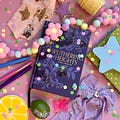
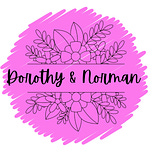




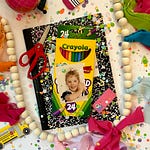

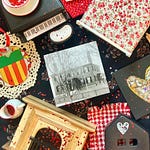
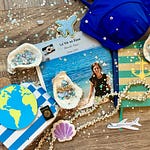
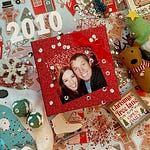

Becoming a Reader